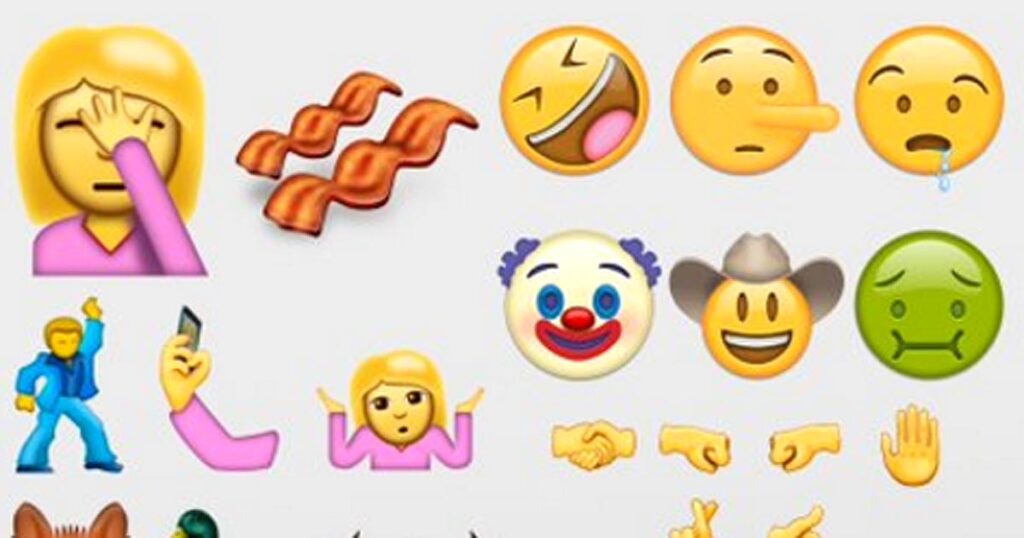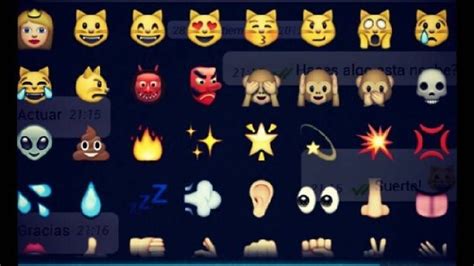JACKSONVILLE, Fla. — Emojis are the new language of our times, from laughing ? and hearts ? to anger ? and sadness ?.
“What’s your favorite emoji?” Action News Jax reporter Ben Becker asked Bianca Simmons.
“Probably the smiling one, just like this,” said Simmons.
“Emoji’s can convey certain emotions that may be unwanted,” said Action News Jax Law and Safety Expert Dale Carson.
http://abc13.com/business/be-careful-what-you-emoji—it-could-land-you-in-court-/3152922/
According to the most recent statistics available, the number of reported legal cases involving emojis or emoticons as evidence has increased from 33 in 2017 to 53 in 2018 to 99 in 2019. Carson said courts are struggling to handle the nuances of emoji’s as evidence.
“Courts have not interpreted yet what that means, it’s a new system of communication,” said Carson.
But it hasn’t stopped some courts from making rulings.

Some examples of reported cases include a face kissing emoji in a sexual harassment suit against the City of Tampa.
In Massachusetts, prosecutors won a case where they argued the defendant’s use of an emoji with x’s for the eyes combined with the nickname of the victim suggested a premeditated homicide.
Even the Florida Bar Association published a best practices guide for attorneys that advises against emojis, saying, “Exclamation points and other indications of excitement such as emojis, abbreviations such as LOL and all caps do not translate well in business communications. Leave them off unless you know the recipient extremely well.”
Part of the problem with emojis is that different technology platforms depict emojis in different ways. For example, an emoji sent via an iPhone, Android or Outlook e-mail message can end up looking different than it was intended.
“You could put a halo after a nasty text and make it like its innocent, but is it,” said social media expert Craig Agranoff.

The eggplant and peach emojis have become synonymous with R-rated parts of the human anatomy, rather than pieces of fruit, and are censored on Facebook and Instagram.
Kendall Anderson said he texts a lot, but tells Becker he will be more careful before he clicks send.
“I think twice now. I make sure it’s appropriate and PG,” said Anderson.
Experts also say emojis can be misinterpreted when used without text, so when in doubt, add a few words to avoid trouble.
Wednesday, February 28, 2018

The emoji of hands pressed together could mean thank you or I’ll pray for you, or, I’m begging here.
The emoji of hands pressed together could mean thank you or I’ll pray for you, or, I’m begging here.
It is hard to know for sure but these fun little symbols have caused some not-so-fun issues in court.
“As images become more important in our society the court cases are going to follow,” said law professor Eric Goldman.
He has studied emoji’s and their historic impact in dozens of legal cases from criminal law, to real estate law, to work contracts.
Not only might one image mean different things, but it might actually be seen differently on each phone.
“There’s going to be more misinterpretations; there’s going to be more misunderstandings,” said Goldman.
Even Unicode, the group that defines what each little symbol is called, issued a statement saying emoji’s are, “used in ways that have multiple meanings.” and, “as for determining the exact meaning intended in a legal case, that will be up to the courts to decide.”
Here’s one example:
“When a lawyer was negotiating on behalf of his client and he made a statement that sounded like he was admitting his client was guilty, but then he followed it with the emoticon that was what we called the Winky designed to suggest that it was a sarcastic or disingenuous remark. And the court read the sentence and totally got it. They understood that Winky negated the textual meaning that the lawyer had written and that the lawyer wasn’t admitting guilt on the part of his client,” said Goldman.
In that case, the semicolon and end parenthesis was the difference between jail time and no big deal.
A key issue, figuring out intent when emoticons or symbols are used.
In another case, police arrested a teenager who posted a police officer emoji and a gun. Some saw it as a threat others called it a stretch.
Goldman says we can expect even more legal confusion in the future.
“As images become more important in our society, they’re going to lead to legal consequences and there are more challenges,” said Goldman.

can i buy accutane over the counter accutane generic can u buy accutane over the counter